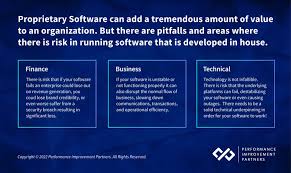Exploring the Versatility of Java Programming Software
The Power of Java Programming Software
Java programming software is a versatile and powerful tool used by developers worldwide to create robust applications for a variety of platforms. Known for its portability, flexibility, and security features, Java has become one of the most popular programming languages in the industry.
One of the key advantages of using Java programming software is its “write once, run anywhere” capability. This means that Java applications can be developed on one platform and run on any other platform without the need for recompilation. This portability makes Java an ideal choice for developing cross-platform applications that can reach a wider audience.
Another strength of Java programming software is its extensive library of pre-built classes and APIs (Application Programming Interfaces) that simplify common programming tasks. Developers can leverage these libraries to accelerate development processes and focus on building innovative features rather than reinventing the wheel.
Security is a top priority in today’s digital landscape, and Java programming software offers robust security features to protect applications from potential threats. With built-in security mechanisms such as sandboxing and encryption capabilities, Java helps developers create secure applications that safeguard sensitive data and prevent unauthorized access.
Furthermore, Java’s object-oriented nature promotes code reusability, modularity, and scalability, making it easier for developers to maintain and extend their applications over time. The language’s strong typing system also helps catch errors at compile time, reducing the likelihood of runtime issues in production environments.
In conclusion, Java programming software empowers developers to build high-performance, secure, and scalable applications that meet the demands of today’s dynamic technology landscape. Whether you are a beginner learning the basics or an experienced developer working on enterprise-level projects, Java provides the tools and resources you need to succeed in the ever-evolving world of software development.
6 Essential Tips for Enhancing Your Java Programming Skills
- Use meaningful variable names to improve code readability.
- Follow Java naming conventions for classes, methods, and variables.
- Comment your code to explain complex logic or functionality.
- Practice writing efficient algorithms and optimize your code for performance.
- Familiarize yourself with Java libraries and frameworks to leverage existing solutions.
- Regularly test and debug your code to ensure it functions as intended.
Use meaningful variable names to improve code readability.
When working with Java programming software, it is essential to use meaningful variable names to enhance code readability. By choosing descriptive and relevant names for variables, developers can make their code more understandable and maintainable. Clear variable names not only help in comprehending the purpose of each variable but also contribute to efficient collaboration among team members. Additionally, using meaningful variable names can reduce the likelihood of errors and make debugging processes smoother. Embracing this simple yet impactful tip can significantly improve the overall quality of Java codebases.
Follow Java naming conventions for classes, methods, and variables.
It is essential to adhere to Java naming conventions when writing code for classes, methods, and variables. By following these conventions, developers can ensure consistency and readability across their codebase. Naming conventions such as using CamelCase for class names, starting with a lowercase letter for method names, and using meaningful names for variables help make the code more understandable and maintainable. Consistent naming practices also facilitate collaboration among team members and promote good coding standards within a project. By following Java naming conventions, developers can create cleaner and more organized code that is easier to manage and debug in the long run.
Comment your code to explain complex logic or functionality.
When working with Java programming software, it is essential to comment your code to explain complex logic or functionality. Comments serve as valuable documentation for yourself and other developers, providing insights into the purpose and reasoning behind specific code segments. By adding clear and concise comments, you not only enhance the readability of your code but also make it easier to maintain, debug, and modify in the future. Effective commenting practices in Java programming software help ensure that your code remains understandable and accessible, facilitating collaboration and promoting efficient development processes.
Practice writing efficient algorithms and optimize your code for performance.
To excel in Java programming software, it is crucial to practice writing efficient algorithms and optimize your code for performance. By honing your algorithmic skills and focusing on optimizing code efficiency, you can enhance the speed and responsiveness of your applications. This practice not only improves the overall performance of your software but also demonstrates a mastery of Java programming principles that are essential for developing high-quality and scalable applications.
Familiarize yourself with Java libraries and frameworks to leverage existing solutions.
To maximize your efficiency and productivity in Java programming, it is essential to familiarize yourself with Java libraries and frameworks. By understanding and utilizing these existing solutions, you can leverage pre-built functionalities and components to streamline your development process. Java libraries and frameworks offer a wealth of resources that can help you expedite project timelines, enhance code quality, and focus on implementing innovative features rather than starting from scratch. Embracing these tools will not only save you time and effort but also empower you to create robust and scalable applications with ease.
Regularly test and debug your code to ensure it functions as intended.
Regularly testing and debugging your code is a crucial practice in Java programming software development. By systematically checking for errors and ensuring that the code functions as intended, developers can identify and fix issues early in the development process. Testing helps maintain the reliability and quality of the software, ensuring that it meets the desired specifications and performs optimally. Through diligent testing and debugging, developers can deliver robust, error-free applications that provide a seamless user experience.






